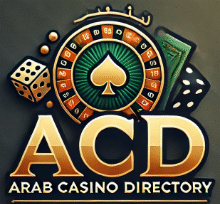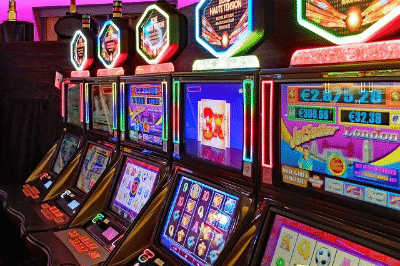
Casinos in Middle East

Casinos in the Middle East: An In-Depth Exploration
1. Introduction
Casinos in the Middle East are a unique blend of luxury, tradition, and modern entertainment. While gambling is generally restricted in many Arab countries due to cultural and religious beliefs, certain countries in the region have embraced casinos as a way to attract tourists and boost their economies. This article explores the countries in the Middle East where land-based casinos are legal, the key differences between these casinos and those in the USA or Europe, and the range of games and services they offer. In Arab Casino Directory you can find the most important Arab land-based casinos
2. Arab Countries with Land-Based Casinos
Contrary to popular belief, some Arab countries do have legal land-based casinos. Notable among them are Lebanon, Egypt, and Morocco:
- Lebanon: Casino du Liban is the most famous and is located in Jounieh, just north of Beirut. It offers a wide range of gaming options, including slot machines, poker, and roulette.
- Egypt: Several casinos operate in cities such as Cairo and Sharm El Sheikh, often attached to luxury hotels. These casinos cater to international tourists and offer games like blackjack, poker, and roulette. The Aladin Casino in Sharm el Sheikh, for example, is also very popular.
- Morocco: Known for its more liberal stance on gambling, Morocco boasts several casinos in cities like Marrakech, Agadir, and Casablanca. These casinos provide a variety of games, from traditional card games to modern slot machines.
3. Legal Status of Gambling in the Middle East
The legal status of gambling in the Middle East varies significantly from one country to another:
- In Gulf countries like Saudi Arabia, the UAE, and Qatar, gambling is strictly prohibited due to Islamic law.
- In contrast, Lebanon, Egypt, and Morocco have regulated gambling industries with laws that allow for casinos to operate under strict conditions. These casinos are primarily targeted at tourists, and locals may face restrictions on entry.
- Jordan has limited forms of gambling available, including sports betting, but does not have land-based casinos.
4. Distinctive Features of Middle Eastern Casinos
Middle Eastern casinos often stand out due to their distinct blend of cultural and modern elements:
- Architectural Style: Many casinos in the region reflect local architectural influences, incorporating elements like domes, mosaics, and ornate decorations that showcase regional craftsmanship.
- Ambiance: The atmosphere in these casinos is often more subdued and culturally sensitive than in their Western counterparts, with a focus on creating a luxurious and exclusive environment.
5. Comparison with Casinos in the USA and Europe
Arab casinos differ from their Western counterparts in several key ways:
- Regulations: Middle Eastern casinos are subject to strict regulations, often limiting entry to foreign tourists and imposing tighter controls on gaming activities.
- Ambiance and Design: Unlike the vibrant, sometimes flashy atmosphere of casinos in Las Vegas or Monte Carlo, Middle Eastern casinos often focus on elegance, privacy, and cultural appropriateness.
- Games Available: While many of the same games are offered (poker, blackjack, roulette), there is often a greater emphasis on privacy and discretion in gaming areas.
6. Popular Games in Middle Eastern Casinos
Casinos in the Middle East offer a range of popular international games:
- Poker and Blackjack: Commonly played in Lebanon, Egypt, and Morocco.
- Roulette: A favorite among tourists, especially in Egypt and Morocco.
- Slot Machines: Widely available in these countries, particularly in the larger casinos.
- Traditional Games: Some casinos may offer regional games or variations of popular games that reflect local culture and tastes.
7. Cultural Sensitivity in Arab Casinos
Cultural sensitivity plays a crucial role in how casinos operate in the Middle East:
- Dress Codes: Casinos may enforce dress codes that align with local customs, such as requiring more modest attire.
- Segregation: In some cases, there might be designated areas for men and women, or separate entrances.
- Halal Services: Many casinos offer halal food and do not serve alcohol, or they limit its availability to specific areas to respect local customs.
8. Casino Services in the Arab World
In addition to gambling, Middle Eastern casinos often offer a variety of luxury services:
- Luxury Accommodations: Many casinos are part of 5-star hotels, offering world-class amenities and services.
- Fine Dining: Gourmet restaurants featuring both local and international cuisine.
- Entertainment: Live shows, concerts, and cultural performances are often available to enhance the visitor experience.
9. Gambling Tourism in the Middle East
Gambling tourism is a growing trend in the Middle East, particularly in countries like Lebanon, Egypt, and Morocco. These countries are leveraging their casinos to attract high-spending tourists, which contributes significantly to their economies. The most casino in the Arab countries are very popular with tourists from the individual countries and are often visited.
The insightful Bloomberg report, UAE’s Stance on Gambling and Financial Markets, highlights the strict position of the United Arab Emirates (UAE) on gambling, which remains prohibited in the country. This ban contrasts sharply with the dynamic growth of its financial markets, which have emerged as a global hub in recent years. Despite conservative cultural and legal restrictions on gambling, the government has heavily invested in financial technologies and economic diversification. This balance between traditional values and a modern financial economy shapes the UAE’s broader economic strategy.
10. Responsible Gambling Measures
Casinos in the Middle East are increasingly focusing on promoting responsible gambling:
- Self-Exclusion Programs: Allowing players to voluntarily ban themselves from gambling establishments.
- Awareness Campaigns: Educating the public on the risks of gambling addiction.
- Support Services: Providing access to counseling and support for those affected by gambling issues.
11. Regulatory Authorities and Compliance
Each country has its own regulatory body responsible for overseeing casino operations:
- Lebanon: The Ministry of Tourism oversees casino operations.
- Egypt: The Ministry of Tourism and Antiquities regulates casinos, ensuring compliance with local laws.
- Morocco: The Ministry of Interior and the Ministry of Tourism regulate the casino industry.
12. Accessibility and Entry Requirements
Casinos in the Middle East often have specific entry requirements:
- Age Restrictions: Typically, patrons must be over 21 years old.
- Identification: Passports or other forms of identification are usually required.
- Dress Codes: Patrons may be required to adhere to formal or semi-formal dress codes.
13. Casino Architecture and Design
The architectural style of Middle Eastern casinos often reflects a blend of traditional and modern influences:
- Exteriors: Utilize local materials and designs, such as marble, tiles, and arches.
- Interiors: Often feature luxurious decor, intricate patterns, and art that reflect the region’s culture.
14. Future of Casinos in the Middle East
As tourism continues to grow, some Middle Eastern countries may reconsider their stance on gambling. Future trends may include:
- Expansion of Casino Offerings: More integrated resort experiences combining gaming with leisure and entertainment.
- Legal Reforms: Potential changes in gambling laws to attract more international tourists.
- Technology Integration: Adoption of modern gaming technologies, including online gaming platforms.
15. Conclusion
Casinos in the Middle East are unique destinations that blend cultural sensitivity with luxury and modern entertainment. They offer a different experience compared to their counterparts in the USA or Europe, focusing more on exclusivity, discretion, and cultural alignment. As gambling tourism continues to rise in the region, we may see further development and diversification of the casino industry. With strict regulations, a focus on responsible gambling, and an emphasis on providing high-end services, these casinos are poised to become significant players in the global gaming market.
Frequently Asked Questions (FAQs)
- Which Arab countries have legal land-based casinos?
Lebanon, Egypt, and Morocco are the primary Arab countries where land-based casinos are legally allowed. These casinos are heavily regulated and primarily serve international tourists. - How do Middle Eastern casinos differ from those in the USA or Europe?
Middle Eastern casinos are more discreet and culturally sensitive, often with stricter entry requirements and regulations. They emphasize luxury and exclusivity, whereas Western casinos might offer a more casual and vibrant atmosphere. - What types of games are available in Middle Eastern casinos?
Players can enjoy a variety of games, including poker, blackjack, roulette, and slot machines. Some casinos also offer unique regional games that reflect local traditions. - Are locals allowed to gamble in Middle Eastern casinos?
In many cases, locals face restrictions when it comes to gambling in Middle Eastern casinos. The casinos primarily target international tourists, and local residents may need special permits or face outright bans depending on the country. - What services do Middle Eastern casinos offer besides gambling?
These casinos often provide a range of luxury services, such as 5-star accommodations, fine dining, and live entertainment. They may also offer wellness services like spas and fitness centers. - Is there a dress code for entering casinos in the Middle East?
Yes, many casinos enforce dress codes that align with local cultural norms, requiring formal or semi-formal attire. Some may have specific requirements for men and women to maintain cultural sensitivity. - What is the future outlook for casinos in the Middle East?
The future of casinos in the Middle East looks promising, with potential legal reforms and expansions to attract more international tourists. The focus is likely to remain on integrating cultural values with modern entertainment offerings.
Closing Thoughts
Casinos in the Middle East represent a fascinating convergence of tradition, culture, and modern luxury. Despite the religious and cultural sensitivities surrounding gambling, countries like Lebanon, Egypt, and Morocco have carved out unique niches in the global casino market. They offer a more subdued and exclusive atmosphere compared to their Western counterparts, which makes them particularly appealing to high-end tourists. As the region continues to diversify its tourism offerings, casinos will likely play an increasingly important role. The industry is expected to grow, driven by international visitors seeking unique experiences that blend local culture with global standards of luxury and entertainment. Middle Eastern casinos, with their distinctive approach and careful balancing of cultural norms, are poised to become key players in the global gaming landscape.



